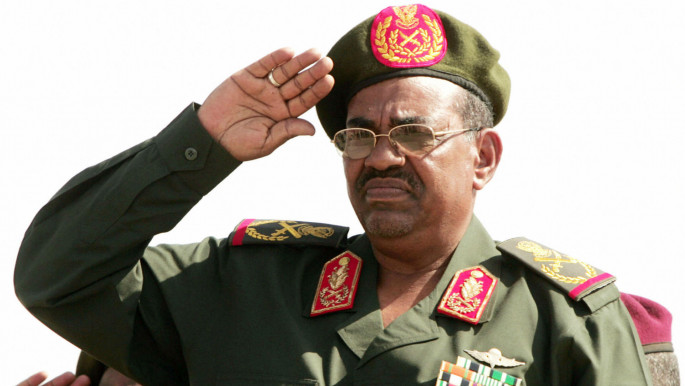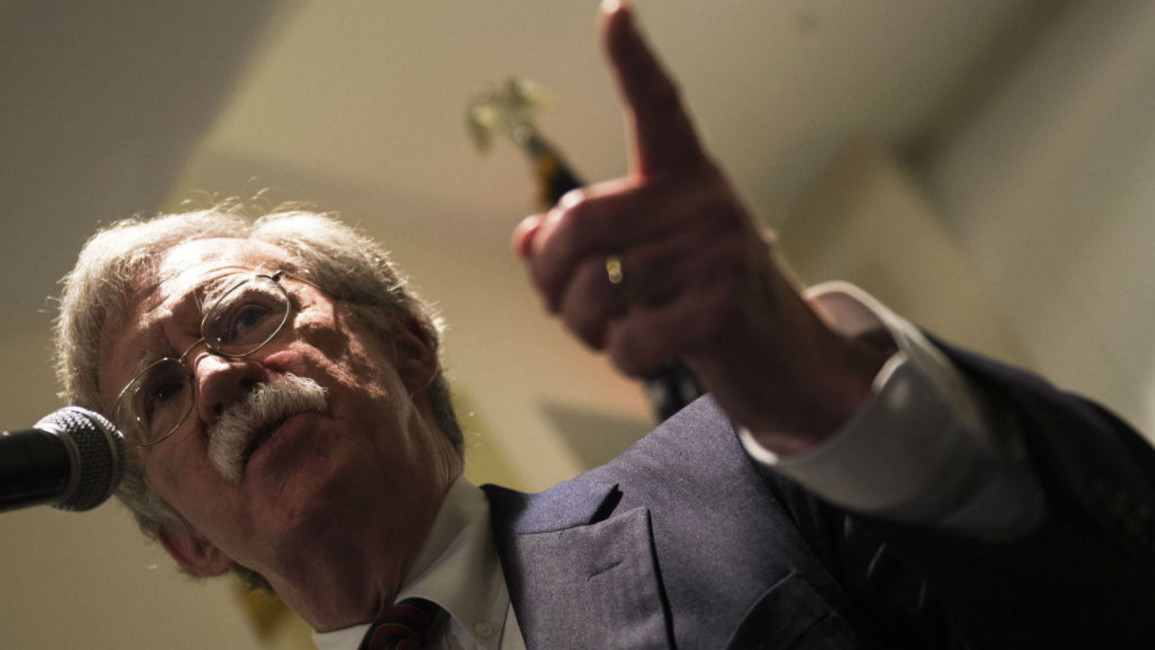
Condemning the ICC, John Bolton blazes the trail for world's despots and dictators
An ICC report detailed acts of "torture, cruel treatment, outrages upon personal dignity and/or rape" committed between 2002 and 2014, on detainees held in Afghanistan, Poland, Romania and Lithuania.
The United States has not taken any action on its own to investigate the matter, showing unwillingness to take initiative, and although not itself a party to the Rome Statute, Afghanistan's participation in the court extends its jurisdiction to war crimes committed on Afghanistan soil.
The likelihood of US cooperation in such an investigation has never been certain.
At a time when the US has faced scrutiny for disrupting traditional allegiances, and behaving unpredictably in foreign affairs, its outspoken position against the ICC, delivered through John Bolton speaking at the Federalist Society, is important, but not surprising.
Donald Trump, whose preference for dictators has drawn the ire of political opponents, received warm wishes after his election from Sudan's President Omar al-Bashir, who was convicted of crimes against humanity in Darfur during the ICC's first criminal prosecution.
The International Criminal Court is relatively new as an international body, a fact that US administrations, wary of uncertainty have repeatedly touted as a reason not to participate.
During the 1990s, military tribunals held to prosecute war crimes in Yugoslavia and Rwanda renewed international interest in the project of creating a permanent war crimes tribunal.
Secretary of State under President George HW Bush, Lawrence S. Eagleburger, had advocated strongly for Slobodan Milosevic to be tried for war crimes, of which the International Tribunal brought 66 counts against him before he died.
Twitter Post
|
The tribunal dissolved following the in-court suicide of convicted Former Bosnian Croat military leader Slobodan Praljak, in November 2017. The ICC eventually indicted two members of The Alliance of Democratic Forces for the Liberation of Congo-Zaire, and issued a warrant for one's arrest.
Negotiations to establish the ICC proceeded throughout the 1990s, despite US attempts to restrict emerging provisions of the Rome Statute, including "the ability of states to bring cases directly to the Court."
UNGA Resolution 50/46 opened the preparatory process to form the court six years prior to the September 11 attacks and start of Operation Enduring Freedom. After a 1998 vote in which the United States joined China, Iraq, Libya, Yemen, Qatar and Israel as one of only seven countries to vote against the measure, the Rome Statute entered into force on July 1, 2002.
As president of the United States throughout the statute's negotiations, Bill Clinton articulated his support for the principle of the ICC, and took the position that signing the treaty would lend legitimacy to its broader development and implementation among signatories.
He faced ridicule from John Bolton, previously a member of the Reagan and first Bush administrations, who feared "the reality for the United States is that over time, the Rome Statute may risk great harm to our national interests. It is, in fact, a stealth approach to eroding our constitutionalism and undermining the independence and flexibility that our military forces need to defend our interests around the world."
Neoconservatives' primary argument against US involvement in the ICC lobbies against participation in international institutions as a rule, which the perceive as having the potential to undermine US sovereignty. The missing argument for US involvement is one grounded in morality. International order has for decades relied on the assumption that norms can be consciously introduced to impact state behaviour.
Clinton refrained from ratifying the treaty, arguing that the United States should take a 'wait and see' approach before committing itself.
 |
The missing argument for US involvement is one grounded in morality |  |
Subsequently, on the advice of John Bolton, President George W. Bush went a step further than his predecessor, and demanded immediate withdrawal of the United States' signature to the treaty a short time after entering office. President Obama reengaged with the court as an observer, without making any further commitment.
Pragmatic arguments for US ratification have stressed its potential utility in pursuing objectives such as war crimes prosecution in other countries. Since the Rome Statute came into force, criticism has accused the ICC of being Africa-centric, targeting African states with western legal norms, akin to a repackaged neo-colonialism under the guise of protecting human rights.
To date, most cases have focused on crimes committed in African countries. Rwandan President Paul Kagame has referred to the institution as "fraudulent". President Omar al-Bashir has avoided arrest despite traveling internationally since the court first issued his warrant in 2009.
 |
|
|
Sudanese President Bashir was indicted by the ICC |
This year marks the 20th anniversary of the Rome Statute. At present, 123 counties are States Parties to the treaty. African leaders have indicated a strategy to collectively withdraw from the ICC, and several states have opted to disengage from the institution since its inception.
In his recent speech to the Federalist Society, John Bolton harkened back to President George Bush's decision to withdraw the United States' signature from the Rome Statute, recalling his longstanding position that the court is "illegitimate".
"The largely unspoken, but always central, aim of its most vigorous supporters was to constrain the United States. The objective was not limited to targeting individual US service members, but rather America's senior political leadership, and its relentless determination to keep our country secure."
Bolton went on to threaten ICC judges and prosecutors with US sanctions, banning from the country, and prosecution in US courts; "If the court comes after us, Israel, or other US allies we will not sit quietly."
American mythology might suggest that as a 'moral beacon', concerned with spreading democracy and 'enduring freedom' across the globe, the United States would welcome participation in a global effort to bring justice in situations where national governments are unwilling to pursue investigations.
History, however, would suggest that US wariness of the ICC has been consistent.
 |
American mythology might suggest that as a 'moral beacon', the United States would welcome participation in a global effort to bring justice |  |
As David Bosco put it in 2009, "liberal internationalists may, in the end, be as willing as neoconservatives to ride roughshod over international law. But they feel sort of bad about it and wish they didn't have to do it."
President Trump strongly expressed enthusiasm for torture during his presidential campaign, and as president, chose to nominate Gina Haspel, who oversaw the infamous torture programme at issue in the ICC investigation, to head the CIA.
Her senate confirmation hearing barely registered as controversial amid the noise of US politics. This is the face that America has chosen to put forward, and it is not a good look.
Rose Worden is a researcher and writer based in New York. She holds a Master's Degree in International Affairs from The New School and is focused on development and security in the Horn of Africa and MENA.
Follow her on Twitter @rswrdn
Opinions expressed in this article remain those of the author and do not necessarily represent those of The New Arab, its editorial board or staff.




